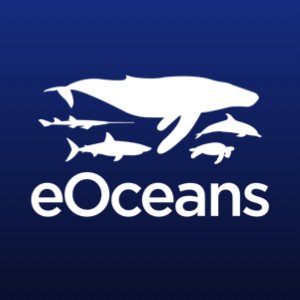
What CSRD Means for Social-Environmental Projects— How eOceans Helps Deliver.
The Corporate Sustainability Reporting Directive (CSRD) is reshaping how organisations account for their environmental and social impacts. For governments, companies, and NGOs working on ocean and environmental projects, it signals a major shift: sustainability reporting is no longer a “nice to have”—it’s a legal requirement in the EU, with ripple effects around the world.
But what does CSRD actually mean in practice for ocean and environmental projects? And how can organisations prepare to meet its demands?
The Basics: What is CSRD?
The CSRD is an EU regulation that requires large and listed companies to disclose detailed information on their environmental and social impacts. It replaces and expands the Non-Financial Reporting Directive (NFRD), with stricter requirements and broader scope.
The directive demands that organisations provide transparent, standardised, and verifiable data on:
Climate and environmental impacts (including biodiversity, water, and ecosystems)
Social and community effects
Governance practices
Risks and dependencies tied to natural systems
For ocean and environmental projects, this means data on biodiversity, ecosystems, and water or ocean use must now be documented with science-grade rigor—not anecdotal reporting.
The Challenge for Ocean and Environmental Projects
Meeting CSRD requirements is not straightforward. Ocean and environmental projects often face:
Fragmented data: Collected across different teams, formats, and locations.
Manual workflows: Time-consuming spreadsheets and siloed reports.
Limited scope: Focused on one piece of the puzzle (e.g., species monitoring), missing broader socio-economic and environmental context.
Verification gaps: Difficulty proving data accuracy, transparency, and trustworthiness.
These challenges make it hard to provide the complete, transparent, and auditable datasets that CSRD demands.
How eOceans Helps You Meet CSRD Requirements
eOceans is a science-grade, patent-pending platform built to take fragmented, complex data and turn it into transparent, integrated, and decision-ready insights. Here’s how it aligns with CSRD:
Integrated Data Across Projects
Merge ecosystem, biodiversity, fisheries, pollution, community, and socio-economic data into a single platform—providing the holistic view CSRD requires.Transparency and Auditability
Every dataset is traceable, with methods documented and processing standardised—building trust with regulators, funders, and stakeholders.Standardised Reporting
Generate outputs that align with CSRD and related frameworks (SFDR, TNFD, ESG)—without reinventing the wheel each time.Efficiency Through Automation
Replace weeks (or months) of manual data wrangling with automated pipelines for analysis, visualisation, and reporting.Future-Proof Monitoring
CSRD is only the beginning—other global frameworks are tightening too. eOceans ensures your project data is scalable, sharable, and ready for evolving requirements.
Why This Matters Now
Organisations that delay risk falling behind—not just in compliance, but in credibility. Funders, regulators, and the public increasingly demand proof of impact, not promises.
By adopting eOceans, ocean and environmental projects can:
Stay ahead of regulations like CSRD
Free up resources from manual data work
Provide funders and stakeholders with science-grade, trustworthy evidence
Build a reputation as transparent, impact-driven leaders
In summary, CSRD is raising the bar for accountability. Ocean and environmental projects that embrace integrated, science-grade platforms like eOceans won’t just survive this shift—they’ll thrive in it.

Would you like to know more?
Launch, Run, and Scale — all in one place.
eOceans is the platform for executing nature–society projects everywhere. Our patent-pending system connects and processes your datastreams in real time to deliver insights, maps, graphs, and reports—saving up to 80% of time and resources. Build trust, credibility, and impact today.
